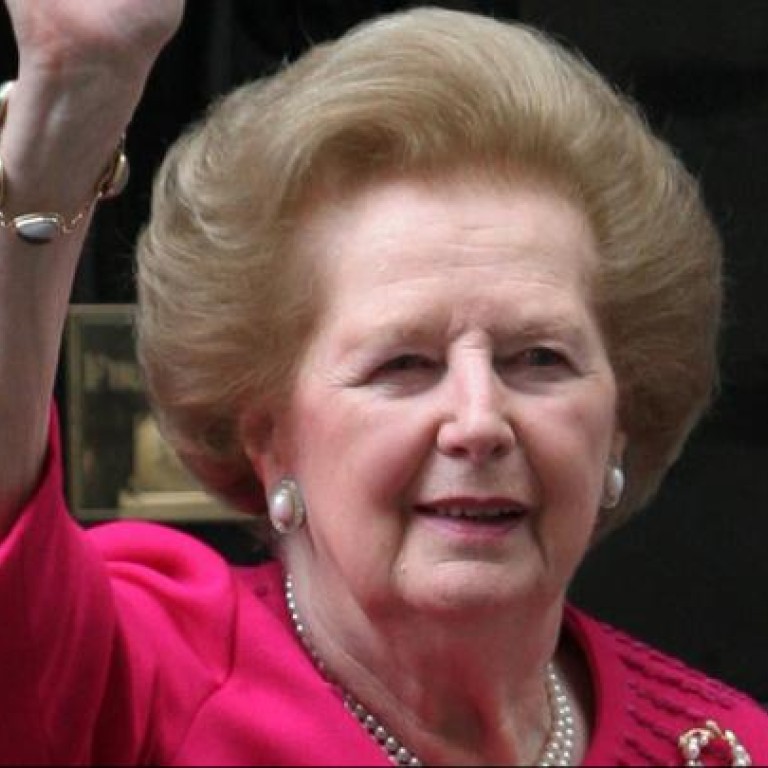
Could Hong Kong use some of Thatcher's 'conviction' politics?
Margaret Thatcher, Britain's longest-serving leader of the 20th century, once claimed credit for "New Labour" and Tony Blair, who served almost as long as she did as prime minister. That the former Conservative Party leader could get away with that pronouncement, without attracting derision, says something about her dominance of British politics and her legacy.
Margaret Thatcher, Britain's longest-serving leader of the 20th century, once claimed credit for "New Labour" and Tony Blair, who served almost as long as she did as prime minister. That the former Conservative Party leader could get away with that pronouncement, without attracting derision, says something about her dominance of British politics and her legacy. Blair did indeed persuade his party to adopt many of Thatcher's tough economic reforms before being elected to office in 1997, such as privatising state-owned industries and embracing free markets.
However, she was not only inspiring, but also deeply divisive - even in death, as we have been reminded by street parties in Britain to celebrate her passing, aged 87.
The year that Blair came to office is better remembered here for the handover of Hong Kong to China on terms that Thatcher broadly agreed upon with paramount leader Deng Xiaoping. It was a meeting of two strong wills. Her death has revived memories that this too was divisive, with some still having not completely forgiven Thatcher for not fighting harder for the city. The chief architect of Britain's handover policy was Percy Cradock, former ambassador to Beijing. Realising that Beijing held all the cards, Cradock advised Thatcher not to try to hold on to all or even some parts of Hong Kong and cautioned that democratic reforms were bound to provoke Beijing. It was one of the few times the Iron Lady - a mocking nickname Thatcher revelled in - did not get her way.
At home, she forced through free-market solutions to the problems of a stalled economy and broke union power. Financial deregulation turned the City of London into a rival to Wall Street. Overseas, her stand against compromise with the Soviet Union helped end the cold war.
Enemies within her own party finally forced her out over unpopular local government reform. But Thatcher remains the most dominant political figure since Winston Churchill. Her take-no-prisoners governing style is foreign to the present Hong Kong way of consultation and consensus and, anyway, we have long had the economic freedom she fought for. One day, however, the city may have reason to reflect on one of her many memorable quotations: "I am a conviction politician ... consensus seems to be the process of abandoning all beliefs, principles, values and policies. So it is something in which no one believes and to which no one objects."
